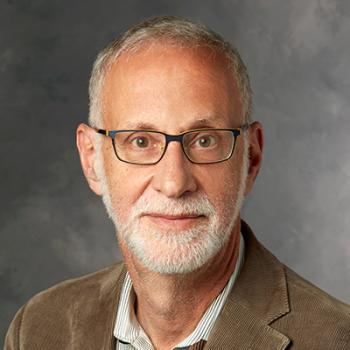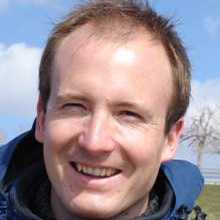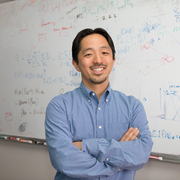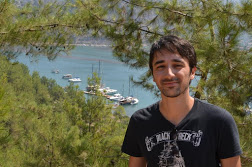Beyond Curve Fitting: Causation, Counterfactuals, and Imagination-based AI
AAAI Spring Symposium, March 25-27, 2019, Stanford, CA
Motivation
In recent years, Artificial Intelligence and Machine Learning have
received enormous attention from the general public, primarily
because of the successful application of deep neural networks in
computer vision, natural language processing, and game playing
(more notably through reinforcement learning). We see AI
recognizing faces with high accuracy, Alexa answering English
spoken questions efficiently, and Alpha-Zero beating Go
grandmasters. These are impressive achievements, almost
unimaginable a few years ago. Despite the progress, there is a
growing segment of the scientific community that questions whether
these successes can be extrapolated to create general AI without a
major retooling. Prominent scholars voice concerns that some
critical pieces of the AI-puzzle are still pretty much missing.
For example, Judea Pearl, who championed probabilistic reasoning
in AI and causal inference, recently said in an interview: "To
build truly intelligent machines, teach them cause and effect" (link). In a recent OpEd in the New York Times, Cognitive Scientist
Gary Marcus noted: “Causal relationships are where contemporary
machine learning techniques start to stumble” (link).
These and other critical views regarding different aspects of the
machine learning toolbox, however, are not a matter of speculation
or personal taste, but a product of mathematical analyses
concerning the intrinsic limitations of data-centric systems that
are not guided by explicit models of reality. Such systems may
excel in learning highly complex functions connecting input X to
an output Y, but are unable to reason about cause and effect
relations or environment changes, be they due to external actions
or acts of imagination. Nor can they provide explanations for
novel eventualities, or guarantee safety and fairness. This
symposium will focus on integrating aspects of causal inference
with those of machine learning, recognizing that the capacity to
reason about cause and effect is critical in achieving
human-friendly AI. Despite its centrality in scientific inferences
and commonsense thinking, this capacity has been largely
overlooked in ML, most likely because it requires a language of
its own, beyond classical statistics and standard logics. Such
languages are available today and promise to yield more
explainable, robust, and generalizable intelligent systems.
Our aim is to bring together researchers to discuss the
integration of causal, counterfactual, and imagination-based
reasoning into data science, building a richer framework for
research and a new horizon of applications in the coming decades.
Our discussion will be inspired by the Ladder of Causation and
Structural Causal Models (SCM) architecture, which unifies
existing approaches to causation and formalizes the capabilities
and limitations of different types of causal expressions (link). This architecture provides a general framework of integrating
the current correlation-based data mining methods (level 1) with
causal or interventional analysis (level 2), and counterfactual or
imagination-based reasoning (level 3). We welcome
researchers from all relevant disciplines, including, but not
limited to, computer science, cognitive science, economics, social
sciences, medicine, health sciences, engineering, mathematics,
statistics, and philosophy.
Topics
We invite papers that describe: 1. methods of answering causal questions with the help of ML machinery, or 2. methods of enhancing ML performance with the help of causal models (i.e., carriers of transparent causal assumptions). Authors are strongly encouraged to identify in the paper where on the causal hierarchy their contributions reside (i.e., associational, interventional, or counterfactual reasoning). Topics of interest include but are not limited to the following:
- Algorithms for causal inference and learning
- Causal analysis of biases in data science & fairness analysis
- Causal and counterfactual explanations
- Causal reinforcement learning, planning, and plan recognition
- Imagination and creativity
- Fundamental limits of learning and inference
- Applications and connections with the 3-layer hierarchy
Invited Speakers
-

Yoshua Bengio
(University of Montreal) -

Mark Cullen
(Stanford University) -

Thomas Dietterich
(Oregon State University) -

Frederick Eberhardt
(Caltech) -

Mohamed Elhoseiny
(KAUST) -

Tobias Gerstenberg
(Stanford University) -

Maria Glymour
(UCSF) -

Paul Hünermund
(Maastricht University) -

Kosuke Imai
(Harvard University) -

John Ioannidis
(Stanford University) -

Murat Kocaoglu
(IBM Research) -

Judea Pearl
(UCLA)
Schedule (*tentative)
History Building (#200), Room 02Logistics
Registration The WHY-19 symposium is part of the AAAI-19 Spring Symposium Series and all the logistics, including the registration, is handled by AAAI. For details, see here.
Format The symposium will include invited talks, discussions, and presentations of some of the accepted papers.
Submissions We solicit both long (7 pages including references) and short (3 pages including references) papers on topics related to the above. Position papers, application papers, and challenge tasks will also be considered. Submissions should follow the AAAI conference format and should be anonymized. We accept submission through AAAI's Easychair (link), look for our symposium.
Important Dates
Submissions (electronic submission, PDF) due: December 17, 2018
Notifications of acceptance: Feb 4, 2019
Jan 27, 2019
Final version of the papers (electronic submission, PDF) due:
March 15th, 2019
Program Committee
- Sander Beckers (Utrecht University)
- Tom Claassen (Radboud University)
- Alex Dimakis (UT Austin)
- Frederick Eberhardt (Caltech)
- Antti Hyttinen (HIT / Univ. of Helsinki)
- Murat Kocaoglu (IBM Research)
- Sanghack Lee (Purdue University)
- Sara Magliacane (IBM Research)
- Joris Mooij (University of Amsterdam)
- Pedro Ortega (DeepMind)
- Roland Ramsahai
- Uri Shalit (Technion)
- Karthikeyan Shanmugam (IBM Research)
- Ricardo Silva (UCL)
- Jin Tian (Iowa State)
- Kun Zhang (CMU)